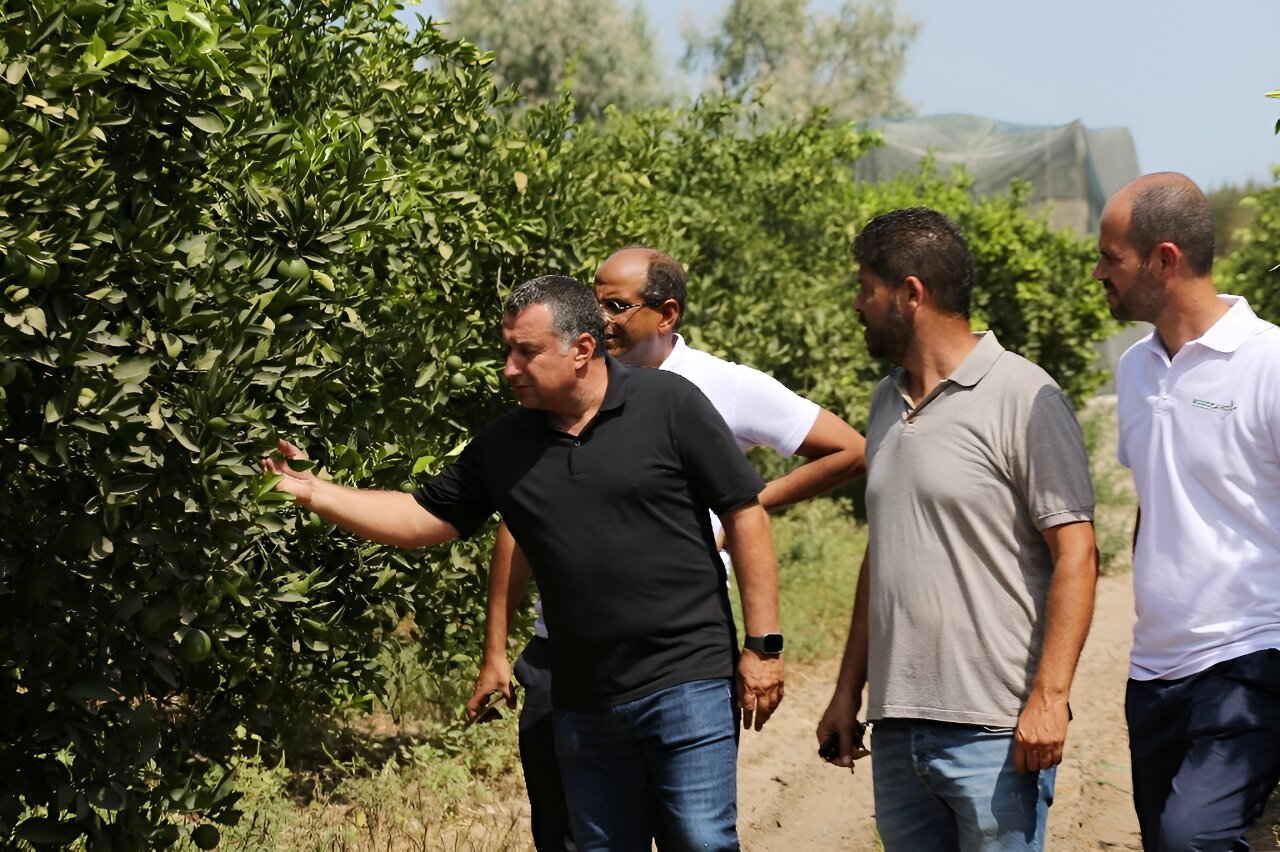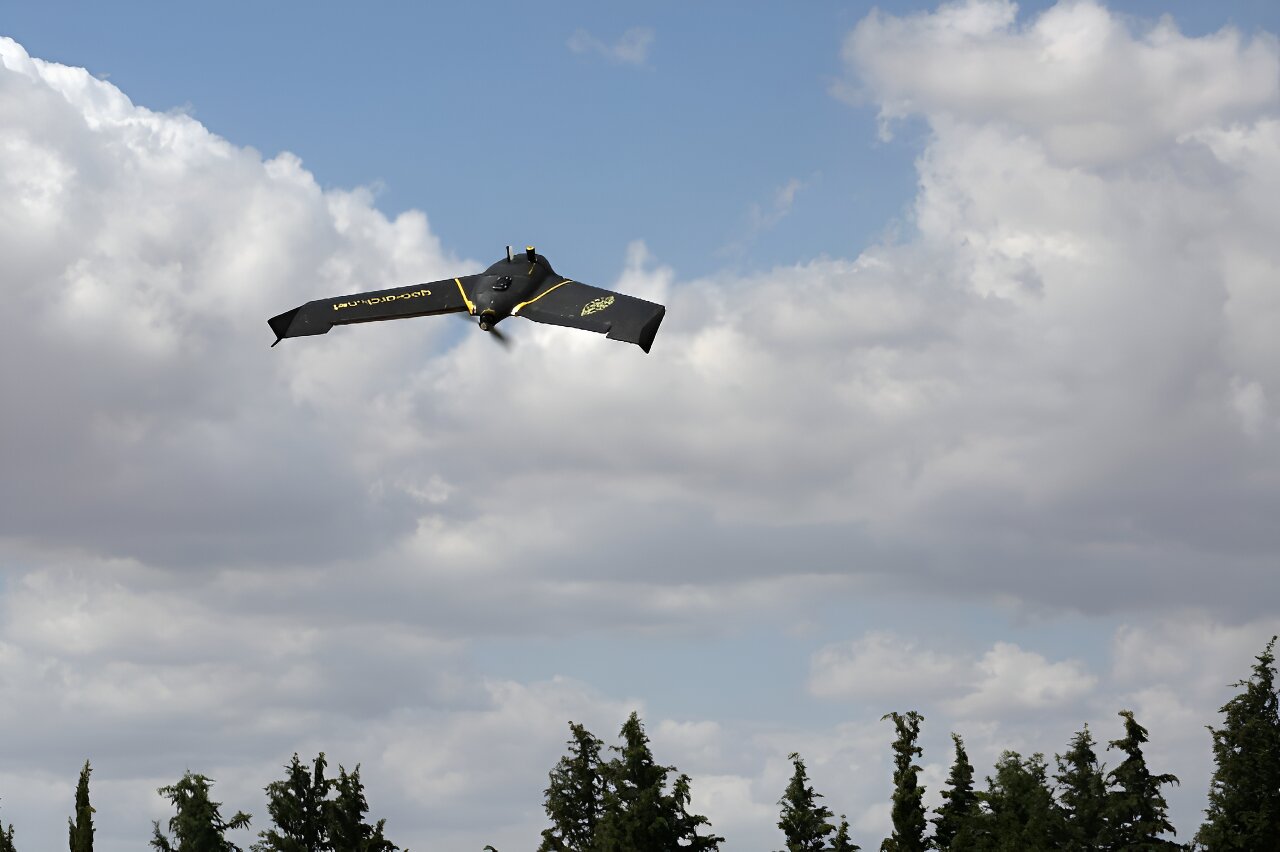2024-11-29 22:11:24
Resorting to modern technologies in the sector of agriculture has become inevitable.

A drone buzzed back and forth above rows of verdant orange trees planted near Nabeul, eastern Tunisia.
The black unmanned aircraft, equipped with a multi-lens camera and sensors, has been enlisted by Tunisian farmers to help adapt to years of drought and erratic weather patterns caused by climate change.
"The seasons are not like they were before where we knew exactly what to do," said farmer Yassine Gargouri, noting temperatures now can begin to climb as early as May while in August there have been unusual summer rains.
He hired start-up RoboCare to scan the trees from the air and assess their hydration levels, soil quality and overall health—to prevent irreversible damage.
The technology "provides us with information on how much water each plant needs, no more, no less", he said.
The use of modern technologies in agriculture is globally on the rise, including in North Africa where countries rank among the world's 33 most water-stressed, according to the World Resources Institute.
RoboCare, employing about 10 people, is the only company in Tunisia, according to its 35-year-old founder Imen Hbiri, to use drones to help farmers combat the impacts of climate change and reduce costs, crop losses and water consumption.

"Resorting to modern technologies in the sector of agriculture has become inevitable," Hbiri told AFP while monitoring the drone's path on her computer screen.
'Challenge of tomorrow'
The daughter of farmers, the entrepreneur knows well the limits of existing farming methods.
Now, in just a few clicks, she can access scans that detect signs of illness or malnourishment before they are visible to the naked eye.
On the screen, fields appear in RGB (red, green, blue) imagery—the greener the plants, the healthier.
Farmers can then use medicine-filled sprinklers mounted to the drones to target the sickly plants with more precision and consequently less expense.
"By relying on this technology, we can save water consumption by up to 30 percent and reduce about 20 percent of the cost of fertilizers and medicine, while raising crop production by 30 percent", Hbiri explained.
Gargouri, who spends about 80 percent of his budget on fertilizers and other remedies, says this technology is the future.
"We must adapt to these upheavals," Gargouri added. "It's the challenge of tomorrow".
Tunisia is currently experiencing its eighth year of drought (four of which were consecutive) in recent years, according to its agriculture ministry.
The country's dams, which are the primary source for drinking water and irrigating crops, are currently only filled to about 22 percent capacity.
And about 20 dams—mostly located in the south—have gone completely out of service.
In neighboring countries, water scarcity is also a major issue.
Licensing hurdles
Morocco—where agriculture accounts for 13 percent of the gross domestic product, 14 percent of exports and 33 percent of jobs—also suffered its worst drought in four decades in 2022.

Only about three percent of nearly two million Moroccan farmers use new technologies in their fields, Loubna El Mansouri, director of the digital center at Morocco's agriculture ministry, told AFP.
A study they conducted found that using drones to water crops could use "less than 20 liters of water to irrigate one hectare compared to nearly 300 liters" used with traditional methods, Mansouri added.
Similarly, Algeria's agriculture ministry said it was using drones and satellite imagery for mapping "to optimize the use of agricultural land by evaluating its characteristics and suitability for production", local media reported.
For the use of these technologies to become widespread, however, Hbiri says the law needs to be changed in Tunisia and awareness raised.
Algeria, Morocco, and Tunisia ban the use of unmanned drones without a permit, which in the case of commercial uses can take months to be issued.
Hbiri hopes authorities will help start-ups reach more farmers as she estimates "only 10 percent of farmers in Tunisia depend on this type of technology".
"We want to focus our work on the use of technology and not spend time and effort on administrative issues and moving between departments and banks, which is slowing our progress," she said.
Source: phys.org
Most Viewed

Elephants, Giant Harmless Animals
2024-11-29 22:11:23

Commercial whaling and climate change are inhibiting evolutionary change in Arctic whales
2024-11-29 22:11:24

World Environment Day: 5th June
2024-11-29 22:11:24

Talking About Earth Day at Havre de Grace Maritime Museum
2024-11-29 22:11:24

Tackling the Impact of Climate Change for All at COP28
2024-11-29 22:11:24
Comment

Why we need a UN Treaty on plastic pollution The Ellen MacArthur Foundation is a UK charity working on business, learning, insights & analysis, and communications to accelerate the transition towards the circular economy.

Air Pollution for Kids Air is all around us and we need it to survive.

Why We Need to Stop Plastic Pollution? Our oceans are being filled and killed by throwaway plastics.

Climate Change, Ecological Crisis and Sustainability We are all agents for change in climate action.

Climate Racism Climate Racism: Social Inequalities in the Age of Climate Change
Brigitte Colman
2024-11-30
les essais nucléaires est un crime contre toutes les spèces. Il faut agir contre cela.
Jacques Ammar
2024-11-30
Sous prétexte de l'auto défense, certains effectuent des essais nucléaires, c'est pire. Les gouvernements ne doivent pas rester silencieux parce que ces essais menace la vie de tous les gens.
L'auteur Alain Damasio
2024-11-30
Comment le pays qui possède plus d'armes nucléaires peut faire une défaite militaire ???
Ecolo
2024-11-30
Les populations contaminées par les poussières d’uranium le gouvernement français responsables de ses contaminations doivent indemnisé ses gens qui vivent là depuis des siècles France regardez toi tu as fait le malheur de ses gens au Niger pour fabriquer encore des armes nucléaires
Pierre Antonie
2024-11-30
Bientôt un centre des fabrication d'armes nucléaires en Afrique étant donné que le Niger est devenu indépendant sa uranium permet de protéger toutes l'Afrique contre l'impérialistes et les ennemis éternel des Africains.
L'auteur Alain Damasio
2024-11-30
Un monde sans armes nucléaires est un objectif admirable.
Pour la France
2024-11-30
! Parfois, les solutions aux problèmes mondiaux peuvent sembler complexes. Mais nous pouvons tous contribuer à promouvoir un monde sans armes nucléaires en sensibilisant les autres, en soutenant des organisations qui travaillent dans ce domaine et en encourageant les négociations multilatérales visant à la réduction et à l'élimination des armes nucléaires.
Christelle GNIDEHOUE
2024-11-30
Chaque petite action compte, alors ne sous-estimez pas l'impact que vous pouvez avoir. Ensemble, nous pouvons créer un avenir plus sûr pour tous.
Brigitte Colman
2024-11-30
Les conséquences mortelles des bombes nucléaires sont toujours là et il faut espérer qu’un jour le monde sera débarrassé des armes nucléaires.
André
2024-11-30
Pourquoi certains gouvernements produisent et stockent les bombes nucléaires??? Pourquoi ces pays ne veulent pas accepter les activités paisibles des pays sur l'energie nucléaires contre le cancer????
Alice Hoffman
2024-11-30
Pourquoi l’Amérique n’arrête-t-elle pas ses activités nucléaires ?